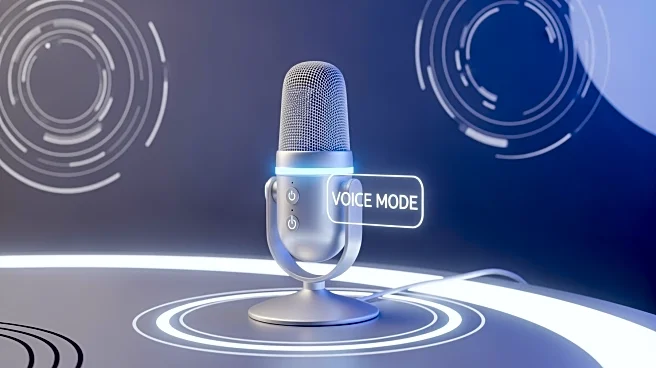What's Happening?
OpenAI has introduced a new voice mode feature for its ChatGPT, allowing users to engage in hands-free conversations with the AI. This feature enables users to speak directly to the AI and receive spoken
responses, creating a more natural and fluid interaction. The voice mode is available across mobile, desktop, and web applications, and it supports both standard and advanced voice options. The standard version transcribes speech to text before processing, while the advanced version uses multimodal models for real-time audio generation. This development is part of a broader trend where other companies like Google and Anthropic are also enhancing their AI with voice capabilities.
Why It's Important?
The introduction of voice mode in ChatGPT represents a significant advancement in AI technology, making interactions more intuitive and accessible. This feature is particularly beneficial for individuals with disabilities, such as those with low vision or motor-skill challenges, as it reduces the need for typing. Additionally, it offers practical applications in language learning and real-time information retrieval, potentially transforming how users interact with AI in everyday tasks. The move also positions OpenAI competitively in the AI market, as it continues to innovate alongside other tech giants.
What's Next?
As voice mode becomes more widely adopted, it is likely that OpenAI will continue to refine and expand its capabilities, possibly integrating more languages and improving real-time processing. The feature's success could prompt further developments in AI accessibility and user experience, influencing how other companies approach AI interaction. Stakeholders, including tech developers and accessibility advocates, may closely monitor these advancements to assess their impact on user engagement and inclusivity.
Beyond the Headlines
The ethical implications of voice-enabled AI are significant, particularly concerning privacy and data security. As these technologies become more integrated into daily life, ensuring that user data is protected and used responsibly will be crucial. Additionally, the potential for AI to misinterpret or inaccurately process spoken language highlights the need for ongoing improvements in AI accuracy and reliability.










